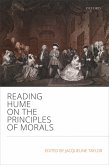After Virtue is a watershed in MacIntyre's career. It follows his emergence from Marxism, but draws on Marxist sources and arguments. It precedes his move to Thomism, but already draws on Augustine and Aquinas. Because of its watershed nature, it has gained a wide readership in various fields but it treats a variety of issues in ways that are unfamiliar either to Marxists schooled in the social sciences or to Thomists schooled in medieval metaphysics.
Reading Alasdair MacIntyre's After Virtue provides a commentary that will be accessible to students, valuable to scholars, and useful to teachers. Students will find help to navigate the two main arguments of After Virtue, to understand its interpretation of history, and to engage its proposal for a form of ethics and politics that returns to the tradition of the virtues. Scholars will find the book useful as a general guide to MacIntyre's ethics. Teachers will find a book that can help to direct their students' reading and keep classroom discussions focused on the book's central concerns.
Reading Alasdair MacIntyre's After Virtue provides a commentary that will be accessible to students, valuable to scholars, and useful to teachers. Students will find help to navigate the two main arguments of After Virtue, to understand its interpretation of history, and to engage its proposal for a form of ethics and politics that returns to the tradition of the virtues. Scholars will find the book useful as a general guide to MacIntyre's ethics. Teachers will find a book that can help to direct their students' reading and keep classroom discussions focused on the book's central concerns.









